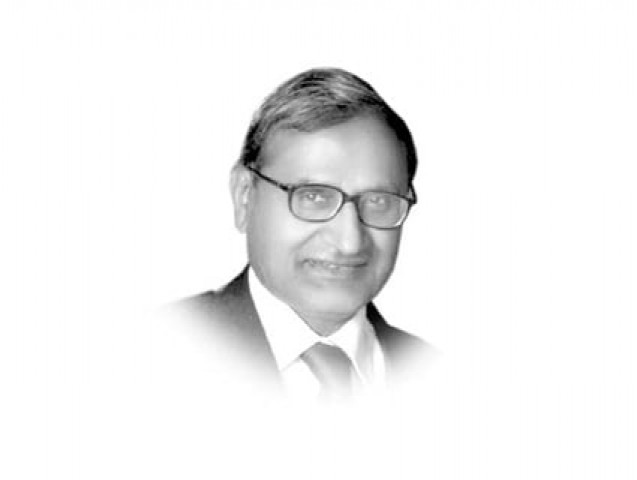Inviting patriotic generals
Altaf Hussain’s call to patriotic generals to take martial law type action on key civilian fronts refuses to die down.

Take the case of feudalism. Drastic land reform would be a good solution. The first martial law regime of Ayub Khan made an effort. However, the ceiling on ownership was too high and the exceptions and exemptions too generous. Largely, the land resumed was uncultivable waste and its distribution was painfully slow and mostly unjust. Any loss suffered by the feudals was made more than good by substantial subsidies granted under the so-called green revolution. In short, the great might of the generals could not break the back of feudalism. The martial law regime of Yahya Khan took no position on feudalism. In sharp contrast, the martial law regime of Ziaul Haq took a strong position against land reform. Its major innovation, the Shariat Court, declared land reform un-Islamic. This put a stopper on the implementation of land reform introduced by Zulfikar Ali Bhutto in 1977, which had brought the ceiling on ownership from Ayub Khan’s 500 acres down to 100 acres. Musharraf’s was closest to a martial law-type regime. The MQM was an important part of it. Zafarullah Khan Jamali, a feudal handpicked to head the civilian façade of the government, made only one qaum say khitab. The only reference made to the economy was a rather proud assertion that no land reform would ever take place. Not surprising, the military during this period itself became the biggest landlord, ever ready to quell tenant revolts on its farms.
Next on the proposed agenda of reform is corruption. Ayub Khan’s take on corruption was to banish from public life luminaries like Hussain Shaheed Suharwardy and settling scores with some senior civil servants. The famous twenty-two families included his own as well. Yahya Khan’s corruption was of a different kind. Ziaul Haq turned the use of state resources for political and personal gains into an art form. Musharraf’s regime used NAB with impunity to achieve political objectives. The horrific stories of massive corruption are only beginning to surface. The use of the military and its allied organisations for implementing the public sector development programme without following the Pakistan Procurement Rules added a new dimension to the military procurements.
Stability, economic and political, is the last item on the menu of the martial law-type regime. There may have been stability under all martial law regimes, but only while they lasted. Their exits, however, are marked by total chaos. Ayub left behind huge economic and social disarray. Yahya left a Pakistan more truncated than in 1947 and the economy in a shambles. Zia’s legacy includes drugs, the Kalashnikov culture, extremism and intolerance. The economic fundamentals were so out of place that the country had to approach the IMF. The great economic miracle of the Musharraf period was more statistical than real. The regime ended by handing over the economy to the IMF.
There is thus no evidence to suggest that a martial law type arrangement can rid the country of feudalism, corruption and instability.
Published in The Express Tribune, September 3rd, 2010.















COMMENTS
Comments are moderated and generally will be posted if they are on-topic and not abusive.
For more information, please see our Comments FAQ